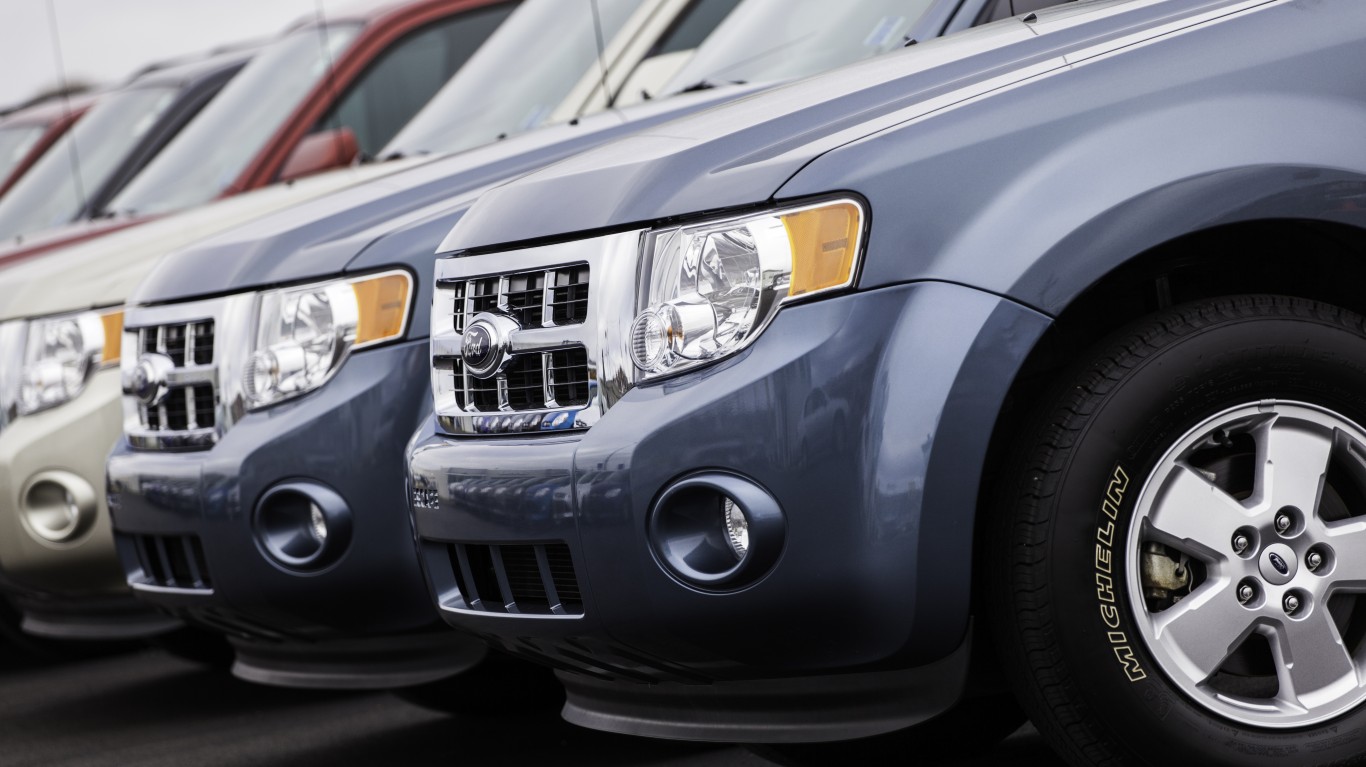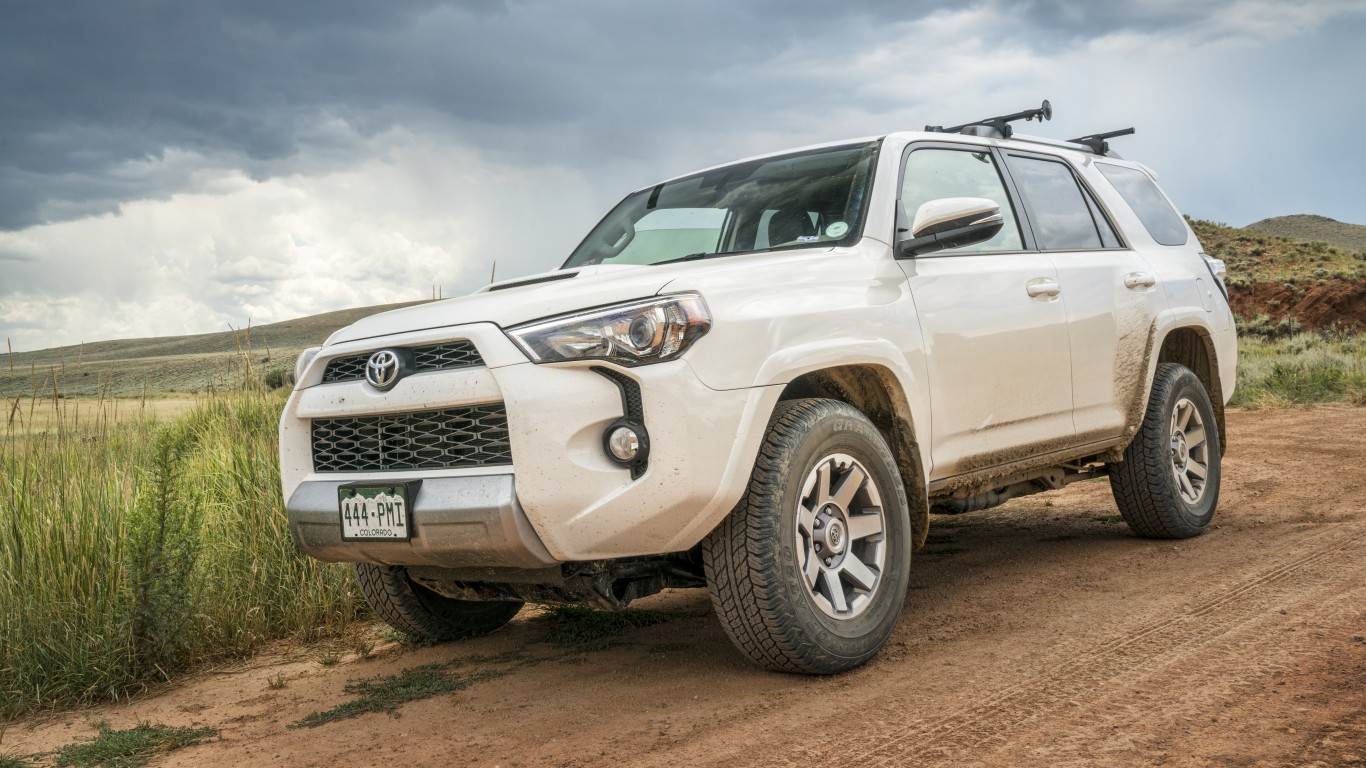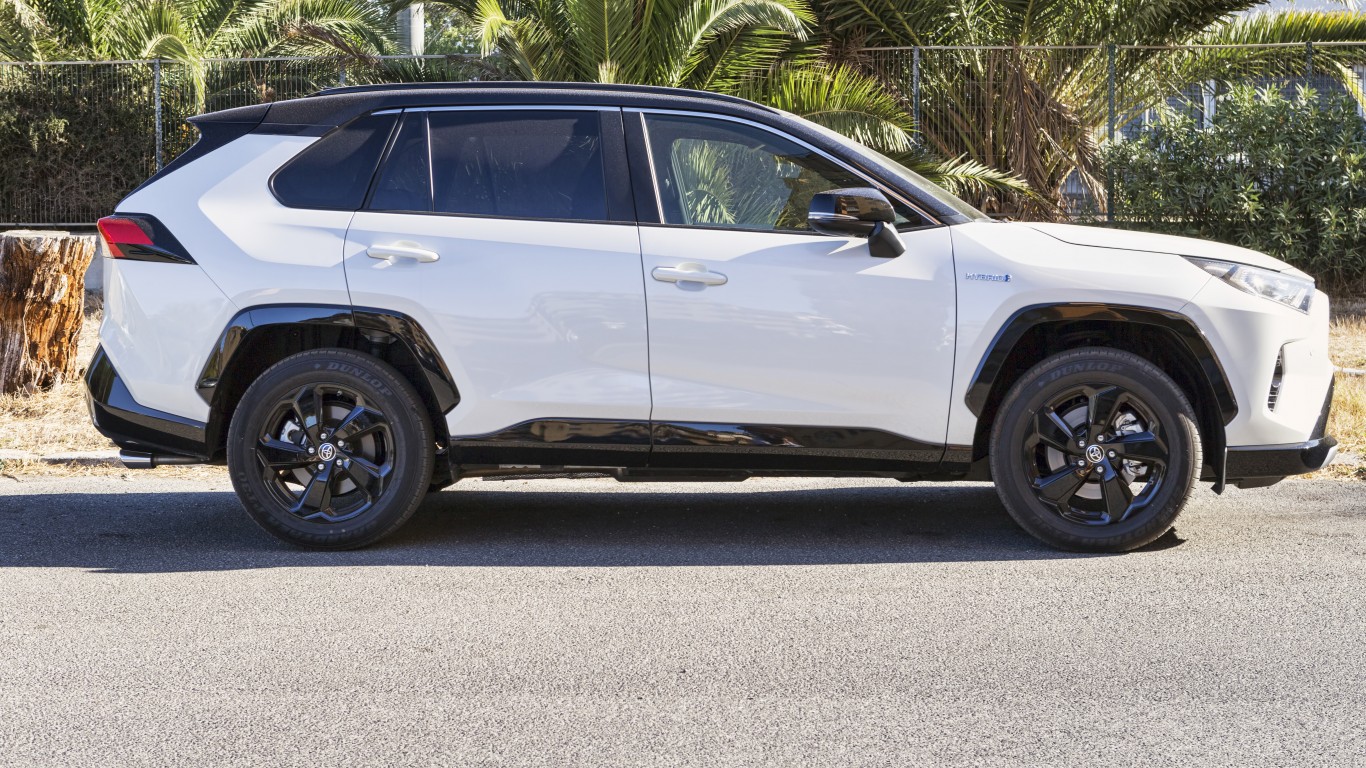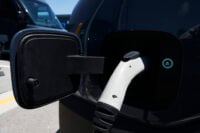 People buy cars based on personal appeal, price, performance, fuel efficiency and reliability. Reliability is among the most important factors for most consumers. A car or light truck that runs without problems saves its owner time, and most important, a great deal of money.
People buy cars based on personal appeal, price, performance, fuel efficiency and reliability. Reliability is among the most important factors for most consumers. A car or light truck that runs without problems saves its owner time, and most important, a great deal of money.
Read: The Least Dependable Cars in America
24/7 Wall St. looked at the recently released JD Power 2012 U.S. Vehicle Dependability Study. We reviewed the auto brands that received the lowest scores. The brands with the most dependability issues were examined to determine why they received such poor marks.
The JD Power survey is based on the responses of more than 31,000 original owners of 2009 model-year vehicles after three years of ownership. Dependability is determined “by the level of problems experienced per 100 vehicles (PP100), with a lower score reflecting higher quality.” The industry’s average for the current study was 132 PP100. The worst brands had more than 160 problems.
For one, many are niche brands. Seven of the nine brands have a U.S. market share of 3% or less. Mainstream brands such as Ford (NYSE: F), Chevy and Toyota (NYSE: TM), which have closer to 15% of the market, do not make the list. Is brand reliability related to market share? There is no evidence that is true.
Some small market share brands like Lexus get high quality marks. However, the small market share brands on this list do not have anywhere near the production quality of Mercedes or Lexus. They are lower end brands with small market share.
The effects of the Chrysler Chapter 11 filing in April 2009 are obvious when looking at the list. The survey measures the dependability of cars manufactured in 2009 after three years of ownership. When the 2009 Chrysler, Jeep and Dodge models were manufactured, Chrysler was in great turmoil, including layoffs, management changes and plant closures — all of which can affect manufacturing quality. It should come as no surprise then that three of the brands on this list are part of that parent company.
The least dependable cars include nine brands that JD Powers’ 2012 Vehicle Dependability Survey lists as having the highest incidence of problems. The dependability number provided for each brand represents the number of reported defects per 100 vehicles — the higher the score, the lower the quality. Initial quality scores by brand and brand dependability scores for these automakers’ most popular vehicles also were reviewed.
Also Read: The Highest-Paid Athletes of All Time
Brand satisfaction scores from the American Consumer Satisfaction Index also were included. Most of the brands on our list ranked close to the bottom in ACSI score relative to the other automakers. We also list what we consider to be the brand’s flagship vehicle — the most recognized and usually one of the highest-selling models of the brand.
These are the least dependable cars in America.
9. Mazda
> Problems per 100 vehicles: 163
> Initial quality score: 4/5
> 2011 sales: 250,426
> 2011 market share: 2%
> Customer satisfaction score: well below average
> Flagship model: CX-9
Mazda is an example of a car company that caters to the low end of the market with inexpensive cars and light trucks. The Mazda brand never gained the traction that the Toyota, Nissan and Honda (NYSE: HMC) did 40 years ago. Those brands have diversified into mid-market and luxury cars. But Mazda can claim some progress of late. Consumer Reports gave some of its models good reviews in its 2011 evaluation of cars and light truck sold in the U.S. However, some of the brand’s top-selling nameplates, including the MAZDA3, MAZDA5, and CX-9 received poor initial quality and dependability scores.
8. Suzuki
> Problems per 100 vehicles: 167
> Initial quality score: 2/5
> 2011 sales: 26,619
> 2011 market share: less than 1%
> Customer satisfaction score: NA
> Flagship model: SX4
Suzuki does not sell many cars in America, perhaps because it competes with more visible brands such as Kia and Volkwagen, which have cheap models. Suzuki is better known for its motorcycles and marine engines than for its cars, at least in the U.S. Few car companies that are part of big auto manufacturers have less than 30,000 sales a year in America — unless the cars are Bentleys or Maseratis. The SX4 received extremely low dependability scores from JD Power.
7. Kia
> Problems per 100 vehicles: 169
> Initial quality score: 3/5
> 2011 sales: 489,452
> 2011 market share: 4%
> Customer satisfaction score: below average
> Flagship model: Optima
Kia’s sales have grown as the low-priced South Korean cars have taken the place that the Japanese cars held from the 1970s to the 1990s. They are affordable for almost anyone who has the means to buy a new car. However, a low price may not buy high quality. Despite gains in market share and total sales, Kia ranks below average in the JD Power and ASCI measurements. The Optima, Kia’s top-selling car last year, received poor reliability scores.
Also Read: GM Earnings Disappoint
6. Volkswagen
> Problems per 100 vehicles: 169
> Initial quality score: 2/5
> 2011 sales: 324,400
> 2011 market share: 3%
> Customer satisfaction score: above average
> Flagship model: Jetta
Volkswagen, now the second largest car company in the world, has battled to gain market share in the U.S. for years. America is the world’s biggest car and light truck market after China, but VW has less than 3% of the market. The German car company has done well in its home base of Europe, and is a leader in the world’s largest market — China. The appeal of the VW is lost on Americans, if market share is any indication. The 2009 Volkswagen Jetta, one of the brand’s top-selling nameplates, received very poor dependability scores from JD Power.
5. Infiniti
> Problems per 100 vehicles: 172
> Initial quality score: 3/5
> 2011 sales: 98,461
> 2011 market share: less than 1%
> Customer satisfaction score: NA
> Flagship model: G Sedan
The inclusion of Infiniti on a list of undependable cars is exceptional. The division of Nissan has been known for producing high-quality cars since the brand was introduced in 1989. The launch was part of a wave of Japanese companies attempting to capture part of the luxury car market that was dominated by Lincoln, Cadillac, Mercedes and BMW. At the same time that Nissan launched Infiniti, Honda released the Acura line, and Toyota its Lexus products. Infinity has languished. It sales have fallen far behind the luxury market leader as Mercedes, BMW, Audi, Lexus and Cadillac have battled for the top position in the U.S. market.
4. Jaguar
> Problems per 100 vehicles: 172
> Initial quality score: 3/5
> 2011 sales: 12,276
> 2011 market share: less than 1%
> Customer satisfaction score: NA
> Flagship model: XF
Jaguar has had the reputation as the worst-built car brand in the world for decades. The company was founded in 1935. Severe supplier problems and defective parts added to the history of Jaguar mechanical failure during the late 1970s and 1980s. Jaguar’s sales were too modest for it to survive alone, so it was sold to Ford in 1990 for $2.6 billion. Ford could not make Jaguar into a successful business, however, so the luxury car company was sold yet again, to India-based car company Tata Motors (NYSE: TTM) in 2008.
3. Jeep
> Problems per 100 vehicles: 179
> Initial quality score: 2/5
> 2011 sales: 419,339
> 2011 market share: 3%
> Customer satisfaction score: well below average
> Flagship model: Grand Cherokee
Jeep was bought by Chrysler in 1987. The Detroit carmaker wanted to add the brand to its existing lineup of cars and light trucks that had modest sales compared to the pickups sold by Ford and General Motors (NYSE: GM). Jeep, the grandfather of the SUV, had a ready market in people who wanted to drive off road or who lived in rural areas. Over time, Chrysler turned some of the models into higher-end products, like the Grand Cherokee, which managed to receive average dependability scores. Yet, other models, including the Liberty and the Wrangler, received very poor dependability scores.
2. Dodge
> Problems per 100 vehicles: 183
> Initial quality score: 2/5
> 2011 sales: 708,650
> 2011 market share: 6%
> Customer satisfaction score: well below average
> Flagship model: Charger
Dodge became a part of Chrysler in 1928. The division focused on the production and marketing of cars and light trucks for years. A line of minivans produced by the company in the early 1980s helped fuel a turnaround of parent Chrysler by CEO Lee Ioccoca, which began with a government bailout in 1979. The Dodge Caravan and Charger became top-sellers for the revived company. The 2009 model Charger actually received better-than-average reliability scores from JD Power, but the Grand Caravan from the same year received a two out of five for dependability.
Also Read: The Ten Countries Deepest in Debt
1. Chrysler
> Problems per 100 vehicles: 192
> Initial quality score: 3/5
> 2011 sales: 221,346
> 2011 market share: 2%
> Customer satisfaction score: well below average
> Flagship model: 300 Series
Chrysler, parent company of the Chrysler, Dodge, Jeep and Ram brands, filed for Chapter 11 on April 20, 2009, which certainly effected the Chrysler brand. At the time, its parent was by far the smallest of the American Big Three auto companies and had a troubled past. Chrysler had engineered a merger with German car company Daimler in 1998. Most of the U.S. company’s top management were thrown out and the German management ran the company. When it became clear to Daimler that Chrysler was a drag on its results, it sold 80.1% of the company to private equity firm Cerberus Capital Management in 2007. Cerberus did not have the money to finance Chrysler through the downturn in sales caused largely be the recession. Its only alternatives were liquidation or bankruptcy.
Douglas A. McIntyre
Sponsored: Find a Qualified Financial Advisor
Finding a qualified financial advisor doesn’t have to be hard. SmartAsset’s free tool matches you with up to 3 fiduciary financial advisors in your area in 5 minutes. Each advisor has been vetted by SmartAsset and is held to a fiduciary standard to act in your best interests. If you’re ready to be matched with local advisors that can help you achieve your financial goals, get started now.
Thank you for reading! Have some feedback for us?
Contact the 24/7 Wall St. editorial team.



